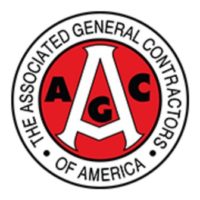"In all three months, private residential construction dropped sharply - 1.0% in June - while private nonresidential and public construction spending increased," Simonson observed. "In June, these categories rose 2.7 and 0.8% respectively. I expect those trends to continue: falling residential spending, very strong private nonresidential and somewhat positive public spending. The 'top line' number will depend on which sector has the biggest change each month. "There are many areas of strength on the private nonresidential side," Simonson added. "For instance, manufacturing spending surged 8% for the month and 24% in the first half of 2006 compared to January-June 2005.
Multi-retail, which includes shopping centers, malls and stand-alone general merchandise stores like 'big-box' retailers, added 1.1% in June and 52% year-to-date. Lodging - hotels and resorts - jumped 8.7% for the month and 39% year-to-date. Transportation facilities were up 1.0% for the month and 28% year-to-date. Power plants had a 4.1% spurt in June and 13% in the first half. And hospital construction continued to soar, up 1.7% for the month and 29% for the first half.
"Nearly offsetting these gains, new private single-family construction tumbled 2.1% in June," Simonson noted. "New private multi-family construction was up 0.1%, which probably reflects a rise in rental construction balancing out a drop in condo projects. The volatile and hard-to-measure 'improvements' category, covering renovations and additions, climbed 1.6% for the month but is down 7% year-to-date.
"I expect to see more of the same for the rest of the year," Simonson predicted. "As builders work through current backlogs of sold but not-yet-built houses, they will curb new construction sharply. Condo work may tail off even more steeply but rental projects will take up some of the slack. On the private nonresidential side, manufacturing, freight and passenger transportation, oil, gas, and alternative energy projects, lodging, and hospital markets should all keep contractors busy. Retail and office construction will be more spotty, depending on local market conditions. Public construction should be helped initially by higher state budgets in the fiscal year that began in July for most states, but higher materials costs will limit the number of contracts that state and local governments can award."



